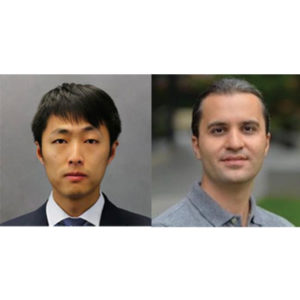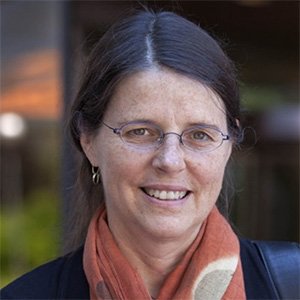
Integrative Biomedical Imaging Informatics at Stanford (IBIIS) and Center for Artificial Intelligence in Medicine & Imaging (AIMI) Seminar: “AI-Aided Diagnostic and Prognostic Tools for Prostate Cancer”
Okyaz Eminaga, MD, PhD
Postdoctoral Research Fellow, Urology
Biomedical Data Sciences
Stanford University
James H. Clark Center, S360
12:00pm-1:00pm – Seminar and Discussion (light refreshments provided)
Join via Zoom: https://stanford.zoom.us/j/613898274
ABSTRACT: Prostate Cancer exhibits different clinical behavior, ranging from indolent to lethal disease. A critical clinical need is identifying characteristics that distinguish indolent from advanced disease to direct treatment to the latter. The recent renaissance of artificial intelligence (AI) research uncovered the potential of AI to improve clinical decision making. In this seminar, we will go through the potential of AI to enhance the diagnosis and the prognosis of prostate cancer using magnetic resonance images, clinical data, and histology images. We will stress the challenges and benefits of having such AI-based solutions in clinical routine.
ABOUT: Dr. Eminaga passed his medical examination (Staatsexamen) 2009 and received his Ph.D. in Medicine 2010 from University of Muenster (major topic: medical informatics) under the supervision of Professor Dr. Axel Semjonow (one of the pioneer physician-scientists and biomarker researcher who worked on the standardization of PSA measurement for prostate cancer which is used nowadays) and Professor Dr. Martin Dugas (who is the head of European Research Center for Information Systems and one of the most influential professors in medical informatics in Europe). For those who don’t know the institute of medical informatics in Muenster. The systematized Nomenclature of Human and Veterinary Medicine (SNOMED), which is now used worldwide in medical information systems, was initiated by this institute more than 30 years ago.
His doctoral dissertation presented a novel documentation architecture for clinical data and imaging called cMDX (clinical map document) that facilitates the concept of the single-source information system for clinical data storage and analysis, and is successfully used in clinical routine for generating the pathology reports with graphical information about the spatial tumor extent for prostatectomy specimens since 2009 at the prostate center of University Hospital Muenster. This work has been also utilized for more than 20 studies related to genomics, translational medicine, epidemiology, urology, radiology, and pathology. Dr. Eminaga also established the biobanking information management system to manage the samples of one of the largest biobanks for prostate cancer in Europe. This biobank is also part of the European P-Mark network for prostate cancer-related biorepositories initiated by Oxford University.
Dr. Eminaga completed his residency in Urology in the University Hospital of Cologne (Germany) with a major focus on uro-oncology. He was also a research fellow in Prostate Center of University Hospital Muenster, doing research in biomarkers, biobanking infrastructure, epidemiology and histopathology. During his residency fellowship, he further evaluated the role of certain miRNA in prostate cancer development under the supervision of the molecular biologist Dr. Warnecke-Eberz. After his residency, he started a research scholarship at the laboratory of Dr. Brooks, doing genomic research and bioinformatics for research topics related to prostate cancer evolution. Now, his current interests have expanded to statistical learning, medical imaging informatics, and integrative data analysis.
He is the recipient of 3 highly-competitive scholarships and his works have been recognized at national and international levels e.g., by the European Association of Urology. Currently, he is an early-investigator research awardee for prostate cancer managed by the department of defense and works on developing decision-aided tools for diagnosis and prognosis of prostate cancer.
Follow us on Twitter: @StanfordIBIIS and @StanfordAIMI
http://ibiis.stanford.edu/events/seminars/2019seminars.html

“Messaging in the Age of Microtargeting”
John Stafford
Assistant Vice President
Digital Strategy
Stanford University
Bjorn Carey
Senior Director
Digital Strategy
Stanford University
Join via Zoom: https://stanford.zoom.us/j/400566542
Abstract:
Communications has become increasingly data-driven, targeted, and personalized. This has changed how Stanford analyzes communications opportunities from a research perspective and how it engages with relevant audiences. In this presentation, John and Bjorn will share the data and communications strategy underlying three communications initiatives and the resulting execution. They will also provide practical advice for individual thought leadership and communications in this dynamic environment.
About:
John Stafford, MA ’06, is currently Assistant Vice President for Digital Strategy at Stanford, the most senior digital communications role in the university. John is responsible for all aspects of creating a world-class digital communications function: setting the group’s strategy, building analytics and insight programs, counseling on crisis communications, leading multi-channel messaging initiatives, and advising colleagues across the University. He received a Master’s Degree in Communication from Stanford, a B.A. in History from the University of San Francisco, and was a founding advisor to Stanford Medicine X.
Refreshments will be provided.

“Algorithm Development Lifecycle in Medical Imaging:
Current State and Considerations for the Future”
Luciano M. Prevedello, MD, MPH
Vice-Chair for Medical Informatics and Augmented Intelligence in Imaging
Division Chief, Medical Imaging Informatics
Director, 3D and Advanced Visualization Lab
Associate Professor, Division of Neuroradiology,
Department of Radiology
Ohio State University Wexner Medical Center
Join via Zoom: https://stanford.zoom.us/j/267814863
Abstract:
This presentation will describe some of the most important considerations involved in creating algorithms in medical imaging from inception to deployment as well as continued model improvement and/or monitoring. Examples of experience to date from the OSU laboratory for augmented intelligence in imaging will be provided. New paradigms in model creation and the role of image challenge competitions will also be covered. Current issues with model validation and generalizability will also be introduced as well as considerations for future work in this area.
Refreshments will be provided.

“A Deep Learning Framework for Efficient Registration of MRI and Histopathology Images of the Prostate”
Wei Shao, PhD
Postdoctoral Research Fellow
Department of Radiology
Stanford University
“Applications of Generative Adversarial Networks (GANs) in Medical Imaging”
Saeed Seyyedi, PhD
Paustenbach Research Fellow
Department of Radiology
Stanford University
Join via Zoom: https://stanford.zoom.us/j/593016899
Refreshments will be provided
ABSTRACT (Shao)
Magnetic resonance imaging (MRI) is an increasingly important tool for the diagnosis and treatment of prostate cancer. However, MRI interpretation suffers from high interobserver variability and often misses clinically significant cancers. Registration of histopathology images from patients who have undergone surgical resection of the prostate onto pre-operative MRI images allows direct mapping of cancer location onto MR images. This is essential for the discovery and validation of novel prostate cancer signatures on MRI. Traditional registration approaches can be computationally expensive and require a careful choice of registration hyperparameters. We present a deep learning-based pipeline to accelerate and simplify MRI-histopathology image registration in prostate cancer. Our pipeline consists of preprocessing, transform estimation by deep neural networks, and postprocessing. We refined the registration neural networks, originally trained with 19,642 natural images, by adding 17,821 medical images of the prostate to the training set. The pipeline was evaluated using 99 prostate cancer patients. The addition of the images to the training set significantly (p < 0.001) improved the Dice coefficient and reduced the Hausdorff distance. Our pipeline also achieved comparable accuracy to an existing state-of-the-art algorithm while reducing the computation time from 4.4 minutes to less than 2 seconds.
ABSTRACT (Seyyedi)
Generative adversarial networks (GANs) are advanced types of neural networks where two networks are trained simultaneously to perform two tasks of generation and discrimination. GANs have gained a lot of attention to tackle well known and challenging problems in computer vision applications including medical image analysis tasks such as medical image de-noising, detection and classification, segmentation and reconstruction.In this talk, we will introduce some of the recent advancements of GANs in medical imaging applications and will discuss the recent developments of GAN models to resolve real world imaging challenges.

CEDSS: “Strategies to Identify Aggressive Breast Cancer Biology in Black and Latina Women”
Victoria Seewaldt, MD
Ruth Ziegler Professor and Chair, Department of Population Sciences
Associate Director for Population Sciences Research, Comprehensive Cancer Center
City of Hope
Beckman Center, Munzer Auditorium (B060)
11:00am – 12:00pm Seminar & Discussion
12:00pm – 12:15pm Reception & Light Refreshments
RSVP here: https://www.onlineregistrationcenter.com/VictoriaSeewaldt
ABSTRACT
Over 90% of breast cancer is cured; yet there remain highly aggressive breast cancers that develop rapidly and are extremely difficult to treat, much less prevent. Examples are triple-negative breast cancer in Black/African American women and luminal B breast cancers in Black/African Americans and Latinas. Breast cancers that rapidly develop between breast imaging are called “interval cancers”. Here we aim to investigate biologically aggressive precancerous breast lesions and their matched invasive breast cancers in women of diverse race and ethnicity. Our team has the unique ability to perform single cell in situ transcriptional profiling in combination with dynamic and spatial genomics/proteomics; this allows us to identify multi-dimensional spatial and temporal relationships that drive the transition from biologically aggressive pre-cancer to interval breast cancer.
ABOUT
Victoria Seewaldt, M.D., is an accomplished clinician and researcher who’s devoted to improving the lives of her patients and the community at large. She has led community outreach education efforts on cancer prevention through personal wellbeing and directed research aimed at finding biomarkers that can be used for early cancer detection, particularly triple-negative breast cancers that are especially resistant to treatment.
At City of Hope, Dr. Seewaldt will direct efforts to provide breast cancer education, free breast cancer screening and treatment, mentorship of young minority scholars, and a forum for community partnered trials. Clinically, Dr. Seewaldt aims to empower women at high breast cancer risk to be full partners in developing wellness strategies to promote personal health.
Dr. Seewaldt received her medical degree from the University of California, Davis, and completed her residency and clinical fellowship at the University of Washington in Seattle. She then pursued a medical oncology fellowship with the Fred Hutchinson Cancer Research Center and then became an assistant professor at Ohio State University. Afterwards, she transferred to Duke University, where she held various clinical, academic and leadership roles in its School of Medicine and Comprehensive Cancer Center — most recently as a professor, co-leader of the breast and ovarian cancer program and head of the cancer breast prevention program — before joining City of Hope.

Please note this seminar is now cancelled and will be rescheduled for a future date. Please contact Ashley Williams (ashleylw@stanford.edu) with any questions or concerns. Thank you for your understanding!
CEDSS: “The First Cell and the Human Cost of going after Cancer’s last”
Chan Soon-Shiong Professor of Medicine
Director, Myelodysplastic Syndrome Center
Columbia University Medical Center

Radiomics and Radio-Genomics: Opportunities for Precision Medicine
Zoom: https://stanford.zoom.us/j/99904033216?pwd=U2tTdUp0YWtneTNUb1E4V2x0OTFMQT09
Pallavi Tiwari, PhD
Assistant Professor of Biomedical Engineering
Associate Member, Case Comprehensive Cancer Center
Director of Brain Image Computing Laboratory
School of Medicine | Case Western Reserve University
Abstract:
In this talk, Dr. Tiwari will focus on her lab’s recent efforts in developing radiomic (extracting computerized sub-visual features from radiologic imaging), radiogenomic (identifying radiologic features associated with molecular phenotypes), and radiopathomic (radiologic features associated with pathologic phenotypes) techniques to capture insights into the underlying tumor biology as observed on non-invasive routine imaging. She will focus on clinical applications of this work for predicting disease outcome, recurrence, progression and response to therapy specifically in the context of brain tumors. She will also discuss current efforts in developing new radiomic features for post-treatment evaluation and predicting response to chemo-radiation treatment. Dr. Tiwari will conclude with a discussion on her lab’s findings in AI + experts, in the context of a clinically challenging problem of post-treatment response assessment on routine MRI scans.

CEDSS: “Multicancer detection of early-stage cancers with simultaneous tissue localization using a plasma cfDNA-based targeted methylation assay”
Eric Fung, M.D., Ph.D.
Senior Medical Director
GRAIL, Inc.
Please see zoom details below:
Meeting URL: https://stanford.zoom.us/j/230531527
Dial: +1 650 724 9799 (US, Canada, Caribbean Toll) or +1 833 302 1536 (US, Canada, Caribbean Toll Free)
Meeting ID: 230 531 527
ABOUT
Dr. Eric Fung is Vice President, Clinical Development at GRAIL, where he leads several clinical development programs in support of the development of a blood-based multi-cancer detection test. Dr. Fung has previously held clinical development and R&D leadership roles at Affymetrix, Vermillion, Ciphergen, and Roche Molecular Diagnostics. Dr. Fung has led clinical trials leading to FDA clearance of multiple IVD products. Dr. Fung received his MD, PhD from the Johns Hopkins University School of Medicine.
Hosted by: Sanjiv Sam Gambhir, M.D., Ph.D.
Sponsored by the Canary Center & the Department of Radiology
Stanford University – School of Medicine

Location & Timing
August 5, 2020
8:30am-4:30pm
Livestream: details to come
This event is free and open to all!
Registration and Event details
Overview
Advancements of machine learning and artificial intelligence into all areas of medicine are now a reality and they hold the potential to transform healthcare and open up a world of incredible promise for everyone. Sponsored by the Stanford Center for Artificial Intelligence in Medicine and Imaging, the 2020 AIMI Symposium is a virtual conference convening experts from Stanford and beyond to advance the field of AI in medicine and imaging. This conference will cover everything from a survey of the latest machine learning approaches, many use cases in depth, unique metrics to healthcare, important challenges and pitfalls, and best practices for designing building and evaluating machine learning in healthcare applications.
Our goal is to make the best science accessible to a broad audience of academic, clinical, and industry attendees. Through the AIMI Symposium we hope to address gaps and barriers in the field and catalyze more evidence-based solutions to improve health for all.

Judy Gichoya, MD
Assistant Professor
Emory University School of Medicine
Measuring Learning Gains in Man-Machine Assemblage When Augmenting Radiology Work with Artificial Intelligence
Abstract
The work setting of the future presents an opportunity for human-technology partnerships, where a harmonious connection between human-technology produces unprecedented productivity gains. A conundrum at this human-technology frontier remains – will humans be augmented by technology or will technology be augmented by humans? We present our work on overcoming the conundrum of human and machine as separate entities and instead, treats them as an assemblage. As groundwork for the harmonious human-technology connection, this assemblage needs to learn to fit synergistically. This learning is called assemblage learning and it will be important for Artificial Intelligence (AI) applications in health care, where diagnostic and treatment decisions augmented by AI will have a direct and significant impact on patient care and outcomes. We describe how learning can be shared between assemblages, such that collective swarms of connected assemblages can be created. Our work is to demonstrate a symbiotic learning assemblage, such that envisioned productivity gains from AI can be achieved without loss of human jobs.
Specifically, we are evaluating the following research questions: Q1: How to develop assemblages, such that human-technology partnerships produce a “good fit” for visually based cognition-oriented tasks in radiology? Q2: What level of training should pre-exist in the individual human (radiologist) and independent machine learning model for human-technology partnerships to thrive? Q3: Which aspects and to what extent does an assemblage learning approach lead to reduced errors, improved accuracy, faster turn-around times, reduced fatigue, improved self-efficacy, and resilience?
Zoom: https://stanford.zoom.us/j/93580829522?pwd=ZVAxTCtEdkEzMWxjSEQwdlp0eThlUT09